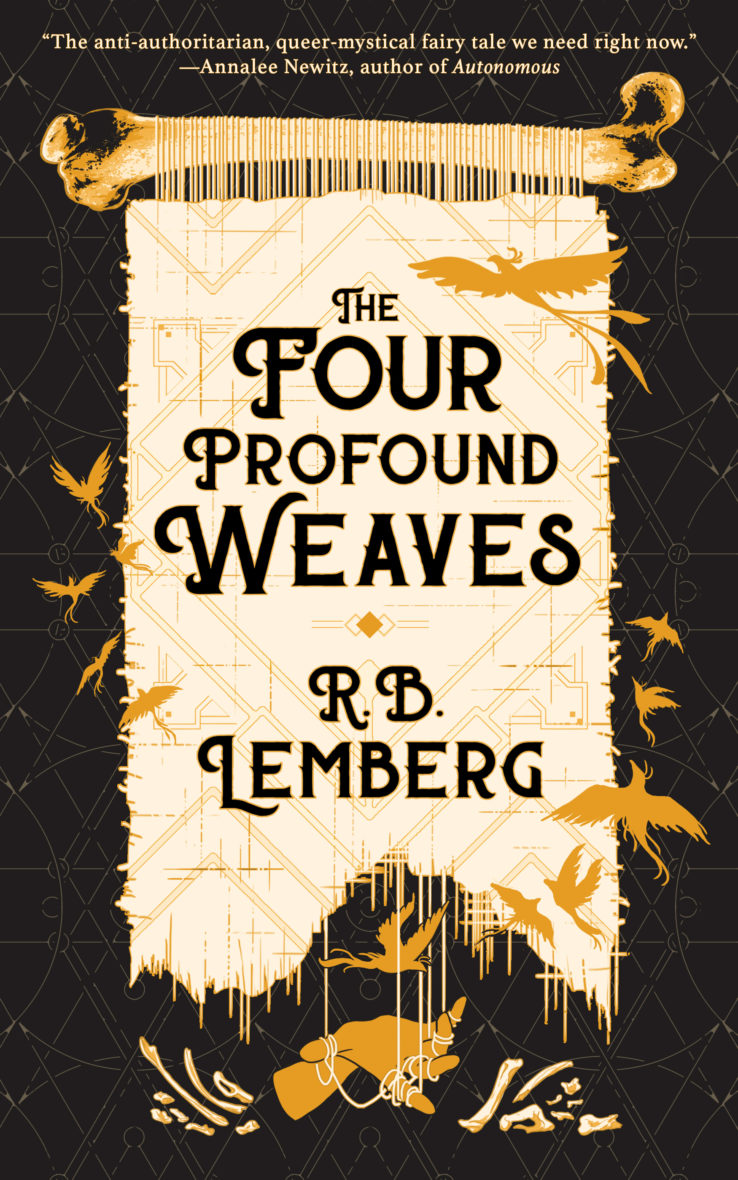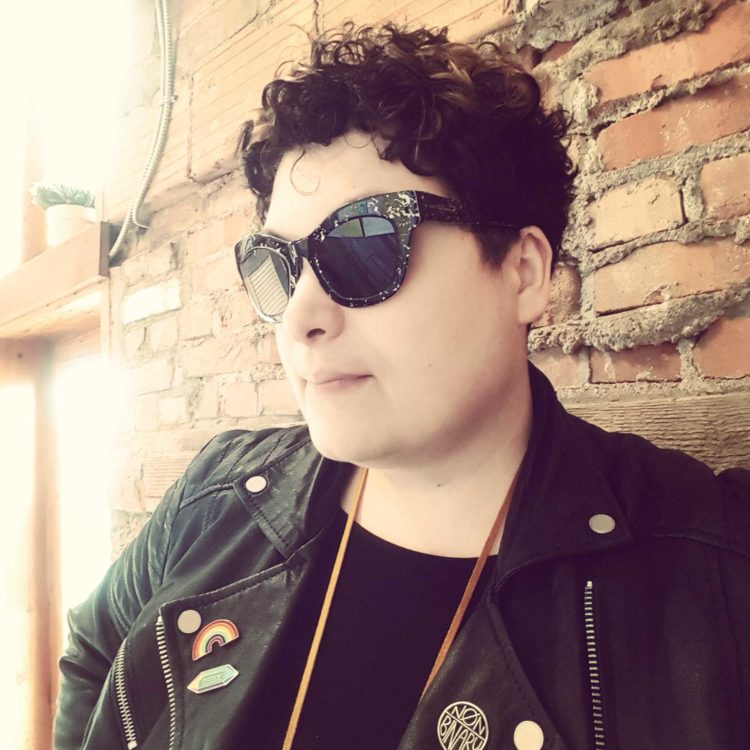Who is R. B. Lemberg, author of THE FOUR PROFOUND WEAVES and creator of Birdverse?
R. B. Lemberg, author of THE FOUR PROFOUND WEAVES, participated in several interviews and crafted some guest posts that offered glimpses behind the curtain of the debut author and their enigmatic Birdverse.

At FEMALE FIRST, Lemberg shares Seven things I’d like my readers to know about me.
1. I was born in the Soviet Union. It does not exist anymore, but while it existed, I lived in two different Soviet republics – Ukraine and Russia. After the Soviet Union collapsed, it turned out that I had retroactively lived in two different countries.
2. I am an immigrant now living in the US. I lived on three different continents. I write about wanderlust in my book because I am forever torn between the need to wander and the desire to stay in one place and be rooted in landscape and weather. Writing helps me wander even when I cannot leave the house.
3. I am a linguist. As a child, I dreamt of waking up knowing ten languages. I would lie in bed and fold my fingers, counting all the languages that I would know. As a teen, I got into medieval and ancient languages, and studied as many of them as I could in college. As a graduate student at UC Berkeley, I dithered forever between medieval and modern topics, finally settling on modern (I study multilingualism, as well as gender). One of my fantasy novels in progress is about a linguist. I hope to finish it one day.
With Fran Wilde, Lemberg discusses the food of Birdverse.
For the feature today, I was going to make a “this-world dish which would nevertheless be Birdversey,” and I promised some of my readers a meat-stuffed eggplant, which is something they might make in Iyar (with lamb, not beef). But I’ve been having some trouble eating meat lately, and so the feature today is Eggplant Stuffed with Itself and Its Fellow Vegetables. It’s definitely Birdversey, and could be made by the Khana grandmothers in Iyar – the Khana people do not eat meat, and this is vegetarian.
I do not follow recipes, and it’s extremely difficult for me to figure out how to convert my own cooking into recipes. Everything is improvisational. I invite you to taste and try as you go.
This dish is easy and very festive. You prepare the different parts separately, and assemble it before serving. The dish is grain-free and meat-free. It does have a bit of honey, so if you want to make it vegan, this is the only substitute you need to make.

On THE WORLDSHAPERS blog, Lemberg participates in an interview.
For John Scalzi’s WHATEVER, Lemberg contributes THE BIG IDEA.
My Big Idea for this piece has always been this: what if older transgender people get to tell their own stories, get to go on a quest, on a grand and tragic and hopeful adventure in which they can finally, in their sixties, truly begin their stories?
This shouldn’t be, perhaps, such a Big idea, but older people – especially older women and older queer people — are underrepresented in SFF unless they are mentors. And of course, there are barely any older trans people in SFF, even as mentors. Older mentors are often in the stories only briefly – they endow the hero with cool magical skills or the Really Big Sword, and then the mentors go on to be tragically killed, so that they can continue to inspire the much younger hero from a safe distance of being dead. I always wanted to write a “mentor’s own adventure” type of story, in which these brilliant mentors get to be in focus.
I was curious about the nameless man, the trans protagonist of my book. He transitioned in his sixties, after forty years of agonizing and closeted life. I wanted to know what he would do after he finally transitioned. Well, almost immediately he made a friend, another trans person, Uiziya, who became the other protagonist of The Four Profound Weaves. Together, they embarked on a mystical quest to find Uiziya’s exiled aunt Benesret, a master weaver who knows everything about death. Uiziya and the nameless man need to learn to weave from death itself to defeat an evil ruler who’d once, a very long time ago, imprisoned and killed the nameless man’s lover.

And for Mary Robinette Kowal’s MY FAVORITE BIT, Lemberg explored the relationship between Judaism and Birdverse.
One of the things I love so much about The Four Profound Weaves is all the Jewish-inspired worldbuilding. I talked about it a little in other interviews – the Khana people are basically secondary-world Jews. My worldbuilding about the Khana people is inspired by both ancient and medieval diasporic Jewish history, but it’s not a direct copy of any specific period or community. Instead, some overarching ideas and some details make it into the story in a way which is, I hope, inobtrusive. Hebrew roots are at the base of the Old Khana language which the men learn, and these roots are recognizable in some of the words and the names that the Khana people use. We learn that the Khana people are diasporic – they are exiles from Keshet, and there are Khana quarters in other places around the landmass. In the city of Iyar, the Khana people live in their own quarter, separated from the outside world by walls and a gate guarded by the Raw Guards (the meaning of the Hebrew word golem, is raw, amorphous, unformed). In one of my WIPs, which happens in a different corner of the landmass, the Khana quarter has been forcibly opened by a hostile government, and their Raw Guards removed or destroyed. The quarters help define a culture and protect the Khana people from hostile outsiders – but they also constrain the people both physically and metaphorically. I also love how there’s more than one possible afterlife in Birdverse – just like in Jewish culture, where there are multiple beliefs about what happens or can happen after we die, and that is certainly reflected in the novella.
